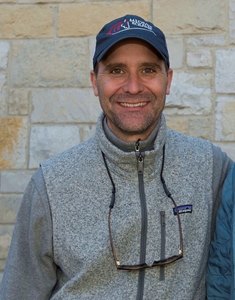Rhein Sentenced for Three Years in Horse Doping Case


As a veterinarian, Dr. Kristian Rhein was entrusted with overseeing the health and well-being of the racehorses in his care.
Sitting quietly in a Manhattan courtroom Jan. 5, Rhein somberly learned of the penalty for violating that trust as United States District Court Judge Mar Kay Vyskocil sentenced him to a three-year prison term for his role in a race doping scheme that involved racehorses he treated for trainer and co-defendant Jason Servis.
Despite pleas from Rhein's attorney, Stephen Scaring, for home detention or probation, Vyskocil applied the full sentence recommended by prosecutors Aug. 3 when Rhein submitted a guilty plea to administering and distributing adulterated and misbranded performance-enhancing drugs to Servis and then hiding his activity from regulators.
"This is a serious offense and was not an isolated or one-time offense," Vyskocil said in announcing the sentence. "It was a long-term and ongoing offense. Once he became aware of the investigation, he and his co-conspirators took steps to hide their offenses from regulators and the public. He has been depicted as someone who wants to help others, but he had that chance as a veterinarian and he abused that trust by betraying those he was supposed to help."
Rhein, Servis, and trainer Jorge Navarro are more than two dozen individuals who have been indicted in United States District Court Southern District of New York in the case. Rhein and others are suspended from racing. He became the fifth to be sentenced to either a jail term, time served, or probation and is one of 10 who have submitted a guilty plea. Another agreed to a deferred prosecution agreement in a case, which began in March 2020, and five more were not included in a superseding indictment.
Navarro received a five-year sentence Dec. 17 and is scheduled to report to federal officials for incarceration in mid-February.
In announcing the sentence, Vyskocil also voiced a need to send a message to others in horse racing and other sports who are using or contemplate using PEDs.
"I have little doubt Dr. Rhein learned his lesson, but a message of deterrence has to be sent to others in this sport and other sports that cannot be ignored," she said while emphasizing Rhein's role as a leader of the conspiracy.
Aside from his time in prison, his conviction was financially devastating to Rhein. He must pay $1,021,800 in forfeitures and handed the court a check for $671,800 toward that debt Wednesday. He is also facing $729,716 in restitution and was fined $10,000.
Following his release from prison, Rhein will be placed under one year of supervised release.
He was ordered to report to a yet-to-be-specified federal prison near his Long Island home March 5.
"I want to apologize to the victims whose trust I violated as a professional," Rhein said to the court prior to the announcement of the sentence. "I am ashamed of my actions and what I did was inexcusable. I did not work in the best interests of my patients and for that I am sorry. I have refocused my life and have learned humility and the value of selflessness."
Previously, while pleading guilty in August, Rhein said, "I, along with Jason Servis, concealed the administration of SGF-1000 and clenbuterol from the owners by billing for other services and dispensables in order avoid scrutiny by the owners."
Rhein also said that he and Servis were the organizers behind the activities of Alexander Chan, Michael Kegley Jr., Rhein's associate Juliana Suarez, and Servis' assistant Henry Argueta, all of whom had knowledge of the scheme to deceive and defraud and were indicted in the scheme.
Servis entered a not guilty plea and is expected to face a trial in the next few months.
In Wednesday's session, U.S. assistant district attorney Andrew Adams said Rhein was involved in fraud that went on four years and was filled with cynicism and hypocrisy by Rhein.
"He was entrusted to care for animals and he injected them for months with no care for their health, but only to help win races," he said. "He chased profits rather than adhere to his professional, moral, and ethical standards. His sentence should send a message to others who chose profits over ethics and hopefully encourage others to report offenses."
In attempt to sway Vyskocil, 19 letters were submitted to the court on Rhein's behalf and Scaring painted him as a good family man and respected member of the community who could still help people through community service as opposed to jail time. He even mentioned that Rhein is a cancer survivor and that time in prison could generate the kind of stress that might cause a re-occurrence.
"He is a good parent, husband, a good veterinarian, good son, and good grandson. He lost his way at some point to engage in what I can say was abhorrent behavior but these letters show that he has accepted responsibility and has proven to others that he is committed to helping others. (Since he was arrested), he has used every ounce of his energy to better his community.
"His life is in shambles," Scaring continued. "He cherished his work as a veterinarian and realizes he is not entitled to do it anymore because of his actions. He will be a felony for the rest of his life. At one time he believed he could do anything. Now he knows better and has paid a price for it."
In the end, those words did not move Vyskocil to reduce the prison sentence, making Rhein the latest, but not the last, individual to land in jail for using PEDs on racehorses.
In about 24 hours after Rhein left the courtroom, yet another co-defendant who has pled guilty in the scheme, Kegley, will appear before Vyskocil to learn his fate.
